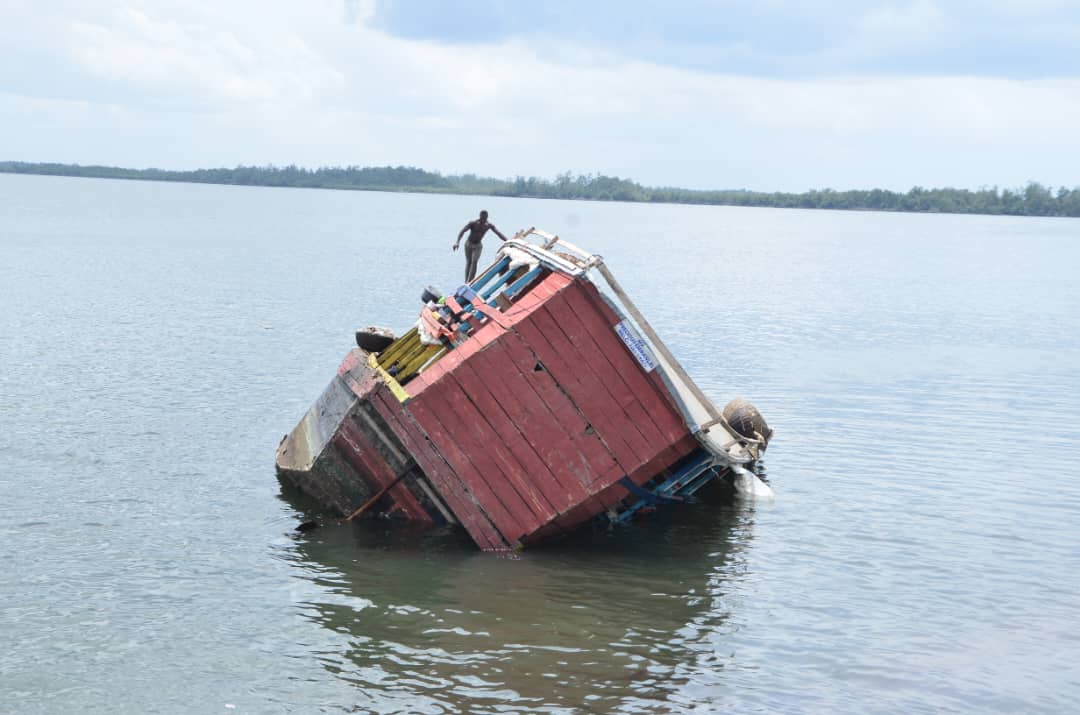Last week, the House of Representatives resolved to investigate the incessant boat mishaps on Nigerian waterways, which have claimed thousands of lives.
The resolution followed concern about the regulatory agency’s lackadaisical attitude toward taking proactive measures to address this recurring tragedy.
The lawmakers further said they would invite the Nigerian Maritime Administration and Safety Agency (NIMASA) and Nigerian Internal Waterways Authority (NIWA) over failed enforcement. It’s about time, too.
The sad incident which spurred the representatives into action occurred on Friday, November 29, 2024 on the Dambo-Ebuchi waterways of the River Niger in Kupa local government area of Kogi State, which involved over 160 passengers. While 24 were rescued, approximately 54 were confirmed dead, and an unknown number was still unaccounted for as of the last report on the matter.
But the story gets worse considering that the Kogi boat mishap marks Nigeria’s third passenger boat accident in 60 days. On October 3, 2024, a wooden dugout canoe carrying 300 passengers capsized and sank in the River Niger, resulting in the loss of nearly 200 lives.
On the surface, the angst of the lawmakers is justified. But it is a little too late, especially as lives have avoidably been lost. More so, shouldn’t the grim history of boat mishaps in Nigeria elicit more than the “usual” reactive parliamentary probe?
Last year, a report by the International Centre for Investigative Reporting (ICIR) revealed that over the past six years, Nigeria saw a troubling trend in boat accidents, with 1,204 lives lost between January 2018 and October 2023.
According to ICIR’s data, about 17 people die monthly from boat mishaps, when 1,204 is divided by the 70 months within the review period.
In the past six years, media reports have recorded boat accidents and casualties in 25 of Nigeria’s 36 states, plus the Federal Capital Territory (FCT). Fatalities include women and children, although efforts were made to rescue many.
The top 10 affected states with the highest number of fatalities from boat mishaps between January 2018 and October 2023 are: Niger 275; Kebbi 144; Kwara 125; Sokoto 117; Lagos 92; Anambra 80. Others are Bauchi 76; Kano 45; Bayelsa 40; and Benue 34.
A report by The Cable in January this year revealed that over 300 lives were lost to boat accidents across the country in 2023, with Kwara and Anambra states recording the most deaths. This figure matches those of the Chartered Institute of Logistics and Transport Nigeria Investigative Committee on boat accidents on Nigeria’s coastal and inland waterways revealed within the same time period.
However, data by the Marine Crafts Builders Association of Nigeria, also released early this year, said Nigeria recorded 3,130 incidents of boat mishaps on its waters in the last 10 years.
As it stands, the casualties in 2024 indicate a rise, with Lagos experiencing 21 casualties, Adamawa 28, Niger 30, Kwara 100, Niger 169, Delta 5, Zamfara 40, and Kano 3.
It’s ridiculous enough that the reasons for these supposed incidents are known and unconscionably sufficient to be labelled criminal negligence.
As various media reports show, emergency services have attributed these accidents to overcrowding, inadequate boat maintenance, reliance on ageing vessels, night voyages, and neglecting safety gear during water travel.
Even President Bola Tinubu ordered a thorough investigation into the tragedies after one such major incident. On that occasion, he assured the affected families and communities of the government’s continued support and his commitment to preventing such tragic incidents from occurring in the future.
Yet, these avoidable calamities continue to happen under the noses of institutions mandated to ensure safety on the nation’s inland waterways.
The National Inland Waterways Authority was established by Decree No. 13 of 1997 (now an Act) with a clear mandate to manage Nigeria’s 3000 km navigable waterways from the Nigeria/Niger and Nigeria/Cameroon Borders to the Atlantic Ocean.
NIWA has the power to exclusively manage, direct, and control the Nigerian inland waterways. For years, NIWA, as an institution, has not lived up to that responsibility. It is abysmal enough that the body has not maximised the economic potential of the waterways, but it is almost unforgivable that lives keep getting lost under its watch.
This cannot continue. Hence our cautious commendation of yet another probe, this time by the House of Representatives, who, as part of the nation’s federal legislature, is not entirely free of blame over poor or no oversights over this matter. We believe that if conscientious, proactive oversights had been done, the death toll would not have been as high as it is.
But as we have witnessed in Nigeria for decades, human lives, especially those considered to have no social or political influence, do not matter. And so it would seem that because those who use this means of transportation are considered socially insignificant, their fate gets to be defined by avoidable failings of government.
So, this House of Representatives has a unique opportunity to prove Nigerians wrong by not just engaging in yet another talkshop but ensuring that the executive puts concrete measures in place to urgently halt these needless killings caused by what could easily pass for wilful negligence.
The challenges are largely known. What is needed is prompt, well-thought-out, and deliberate action. Human lives are supposed to be sacred. Let’s begin to treat them as such.
